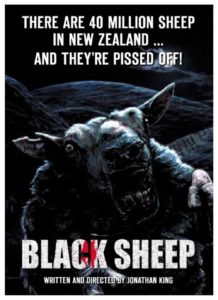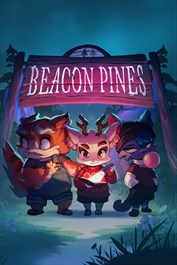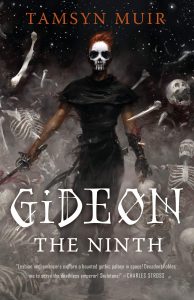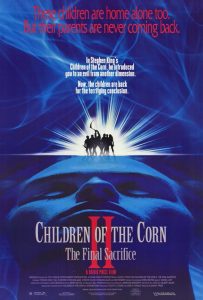 You know how sometimes the plot of a movie goes in so many different directions that you can tell the person (or more likely “people”, and probably in serial rather than parallel) had no idea what they were doing, and just kept throwing anything and everything at the wall to see what would stick, with the result that basically nothing sticks and the movie makes no sense whatsoever?
You know how sometimes the plot of a movie goes in so many different directions that you can tell the person (or more likely “people”, and probably in serial rather than parallel) had no idea what they were doing, and just kept throwing anything and everything at the wall to see what would stick, with the result that basically nothing sticks and the movie makes no sense whatsoever?
Apparently, in New Zealand, you can do that and it all weaves back together and every part of it makes sense. …well, okay, no, that is an exaggeration at best. But enough of it comes together and what remains is funny enough that you can ignore the plot holes. Well, also arguably I should not generalize to everything they make, but at least for Black Sheep, it’s all true.
It’s like this: two brothers, unalike dignity, in fair Aotearoa, where we lay our scene, from ancient grudge break to new mutiny, where ovine blood makes civil hands unclean[1]. …but I suppose I should say more. See, the grudge between them is over the murder of Henry’s sheep and also, due to the gory shock and unrelated timing of the event, over Henry’s subsequent ovinophobia. Unfortunately, the day fifteen years later that Henry shows up to finally wash his hands of the relationship (and the massive sheep farm that he owns a 50% share of) is the day his brother has set aside to reveal his new breed of sheep upon the world.
This is unfortunate because the disgraced geneticist that has assisted him with a unique (or, depending upon your perspective, distressingly common) form of animal husbandry has also been performing her own experiments in what I choose to believe was a method of keep meat fresh for the longest period possible. If you guessed “zombie sheep that are still alive even after being dressed and hung on meathooks, but also one of the experimental animals escaped and spread the, er, modification to the herds at large”, then, well, I really painted an evocative picture in the first place, and go me! Or you’re an uncommonly good guesser.
The thing is, there’s so much more to it than just that, and most of it chuckleworthy. Also, there are multiple instances of unnecessary to the story rabbit dismemberment. I wonder if it’s lingering resentment over Night of the Lepus? But whatever, the point is, the movie is mostly good, mostly funny, and has more subplots than you can shake a pointed stick at.
[1] There’s no reason for this, and yet here we are.
 So walking simulators are a thing, right? Although I’m always leery of using the terminology, because am I trying to say “it’s like a game, but you don’t have to have any gaming skills to play it,” and more importantly, is that extra judgy / gatekeepery? I think I’m overthinking it, especially since I like both kinds of games, and others for that matter. Anyway, all of this to say that Beacon Pines is sort of that kind of game[1], but with a choose your own adventure twist.
So walking simulators are a thing, right? Although I’m always leery of using the terminology, because am I trying to say “it’s like a game, but you don’t have to have any gaming skills to play it,” and more importantly, is that extra judgy / gatekeepery? I think I’m overthinking it, especially since I like both kinds of games, and others for that matter. Anyway, all of this to say that Beacon Pines is sort of that kind of game[1], but with a choose your own adventure twist.







